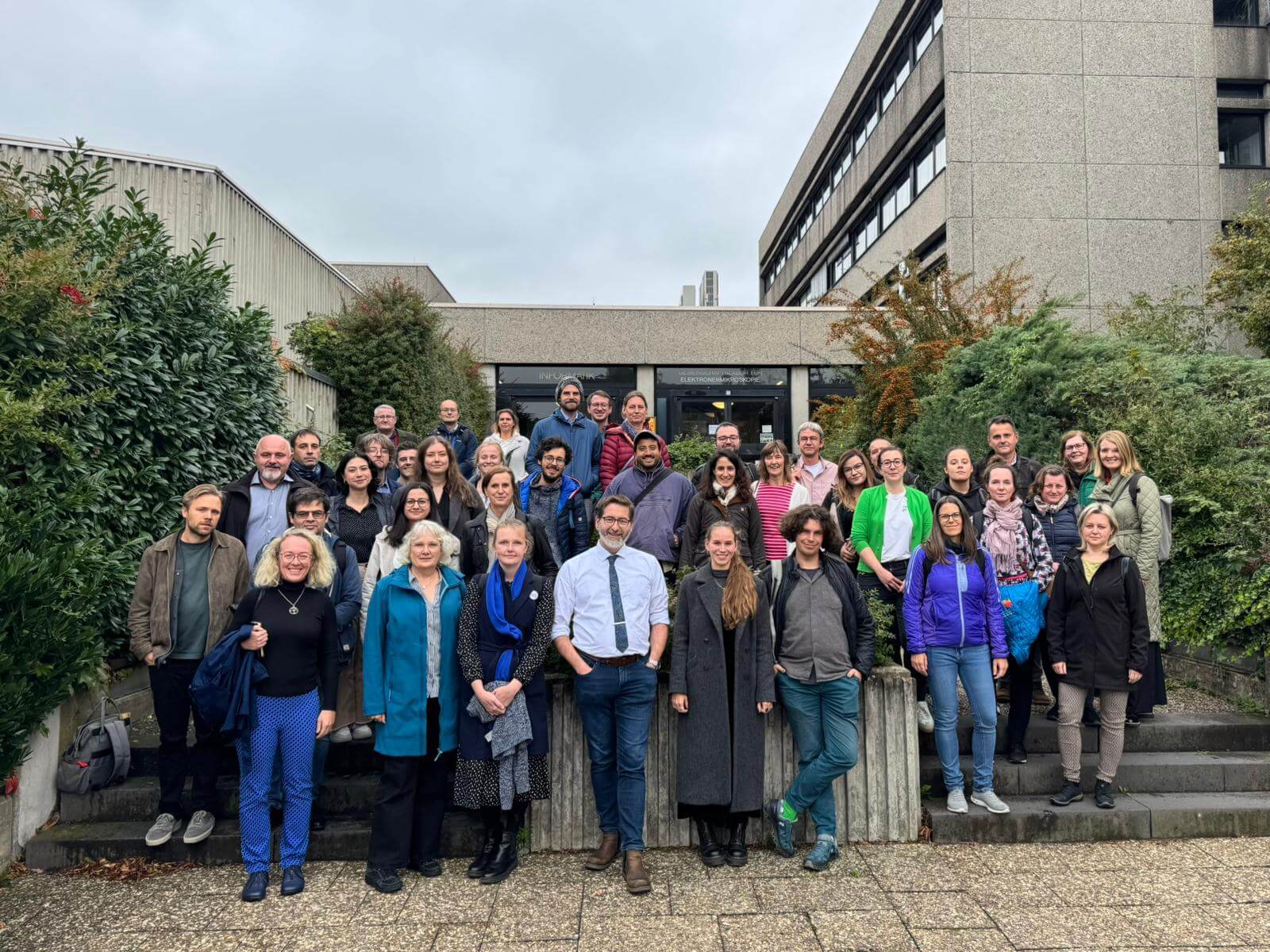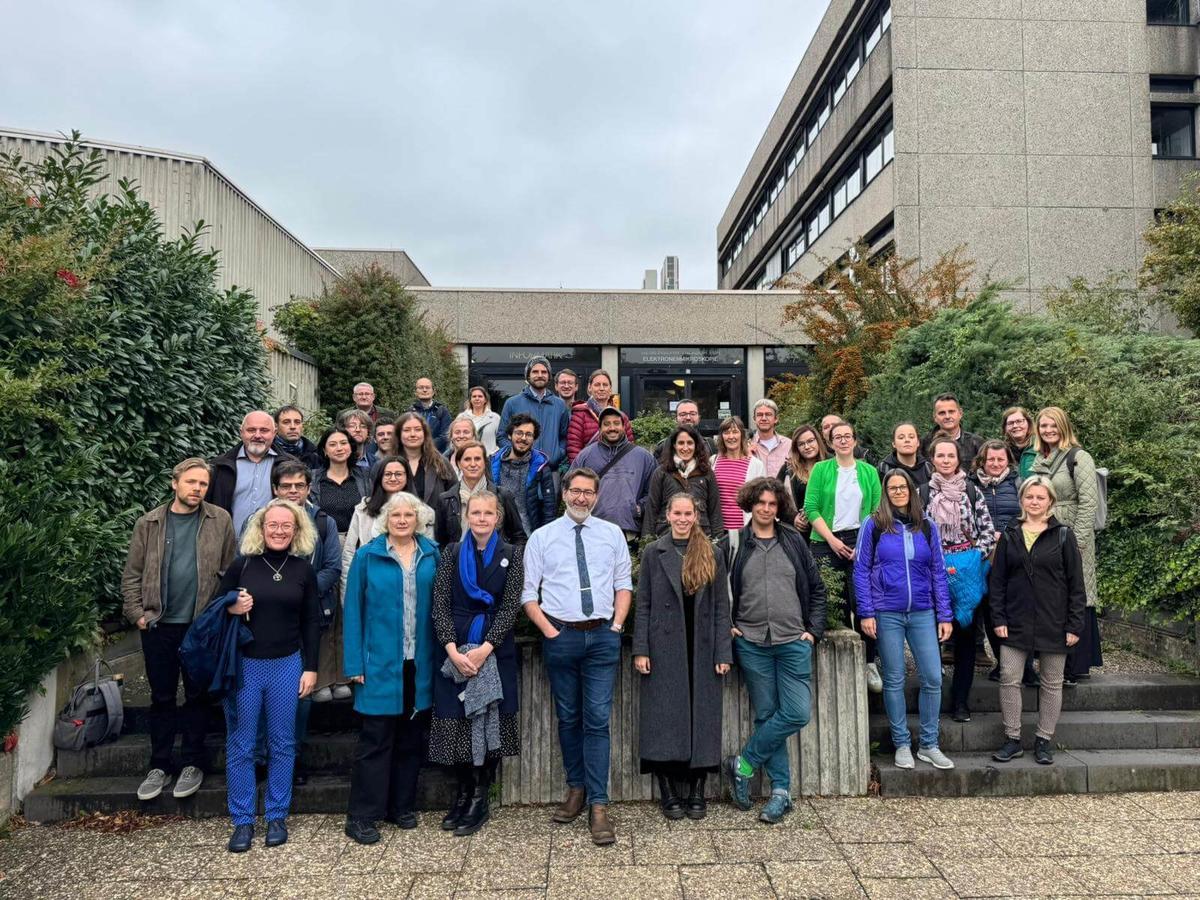From Conference Room to Flood Plain: Scaling Nature-Based Solutions
Last week, all LAND4CLIMATE partners took part in the Fifth Consortium Meeting at RWTH Aachen University. We had three packed days to share, reflect and collaboratively work on some challenges encountered while using Nature-Based Solutions (NbS) to address climate resilience and promote systemic change. As we enter the third year of our project, this was a memorable way to celebrate and energise the group for the next two years.
Day One: Mid-term Forum – Scaling-up NbS is a group effort
The Mid-Term Forum on October 6, 2025, brought together practitioners, policymakers and interested stakeholders to examine how NbS can scale up from pilot projects operating on a micro level to widespread implementation across Europe. Prof. Erik Andersson's keynote cut through the rhetoric around NbS to address their fundamental tensions. While NbS operate across social, scientific, environmental, and technological domains-building resilience through attenuation, connectivity, and flexibility-they face a stark reality: the mismatch between spatial planning ambitions and actual land availability, particularly in urban areas. Andersson challenged the field's over-reliance on co-creation as a default approach, arguing it has its place in relationship-building but shouldn't dominate every decision-making process.
The real test, he concluded, isn't proving NbS work at the micro scale- it's achieving scale in four directions: scaling up (governance), scaling out (replication), scaling long (sustainability), and scaling deep (cultural transformation). We then moved on to showcase some NBS4EU’s work demonstrating how LAND4CLIMATE alongside ARCADIA, CARDIMED, DesirMED, MountResilience, NATALIE and NBRACER are building the evidence-base and practitioner experience on NbS. The sheer breadth and diversity of the projects were impressive, differing in geographical location, NbS typology, and land type. The afternoon session saw a series of parallel discussions on evidence base and scalability, spatial requirements, funding strategies and implementation challenges. It was very stimulating to have roundtable discussions on these issues, which enabled the sharing of both academic insights and practical know-how.
Day Two: Consortium Meeting – Let’s keep working together
The October 7th consortium meeting opened with reflections on the Mid-Term Forum and the previous peer-to-peer session before breaking into focused working groups. Front-Runner Regions tackled their thorniest challenges and creative solutions in their third exchange touching upon the following topics: engaging landowners, communicating NbS effectively, and finance, funding, sustainability and scalability. Replication Regions launched their first collaborative session to map out needs and priorities, while academics split by role- PhD students and postdocs refining peer-review papers, principal investigators crafting a policy-facing opinion piece. The afternoon reunited the group to take stock of implementation progress across regions, then dove into UJEP's serious game - a hands-on game that simulates the negotiations and bottlenecks teams face when engaging landowners on climate risks.
The day closed with a thorough exploration of NbS acceptance and the social research gaps that still exist in deepening our understanding of how landowners and local communities engage. Acceptance of NbS is a multidimensional process influenced by factors such as awareness, perceptions, attitudes, values, social capital, trust, governance, and behaviours. Crucially, acceptance is not a fixed state: it changes as actors navigate trade-offs, weigh risks against benefits, and connect with wider values and social capital - we look forward to investigating this further in our upcoming research. A final reflection session invited participants to share their key-take-aways from and success stories in communication, ranging from interviews in regional and national TV, to the co-organisation of outreach activities with projects funded under the same call, such as the session “From Practice to Policy: Innovating Water Resilience through Nature-based Solutions (NbS)” at the 2025 European Urban Resilience Conference.
Day Three: Field trip - Nature-based solutions in action
Seeing is believing—and this became abundantly clear during our excursion through the Kreis Euskirchen region, where theory and plans met ground-level reality. Our journey took us through sites shaped by both crisis and innovation. In localities devastated by the 2021 floods, we witnessed unsealing measures that now allow water to infiltrate rather than inundate. At Lake Zülpich, an ingenious flood retention plan transforms the lake into an overflow discharge area during extreme events, proving how existing water bodies can become climate adaptation infrastructure. The renaturalisation of a river and its banks showed ecological regeneration in action, while two tiny forests and a climate park demonstrated that compact interventions can deliver outsized impacts.
These are not single-purpose solutions. While providing critical flood resilience, they simultaneously deliver biodiversity gains, recreational spaces, and public health benefits. Local residents and visitors do not just live in symbiosis with these measures: they benefit from cooler microclimates, restored nature, and enhanced wellbeing. After two days discussing challenges and frameworks, we saw the end goal: functional, multi-benefit landscapes proving that Nature-Based Solutions work in practice. A perfect conclusion to an inspiring trip.
This article was written from LAND4CLIMATE consortium partner DEN Institute
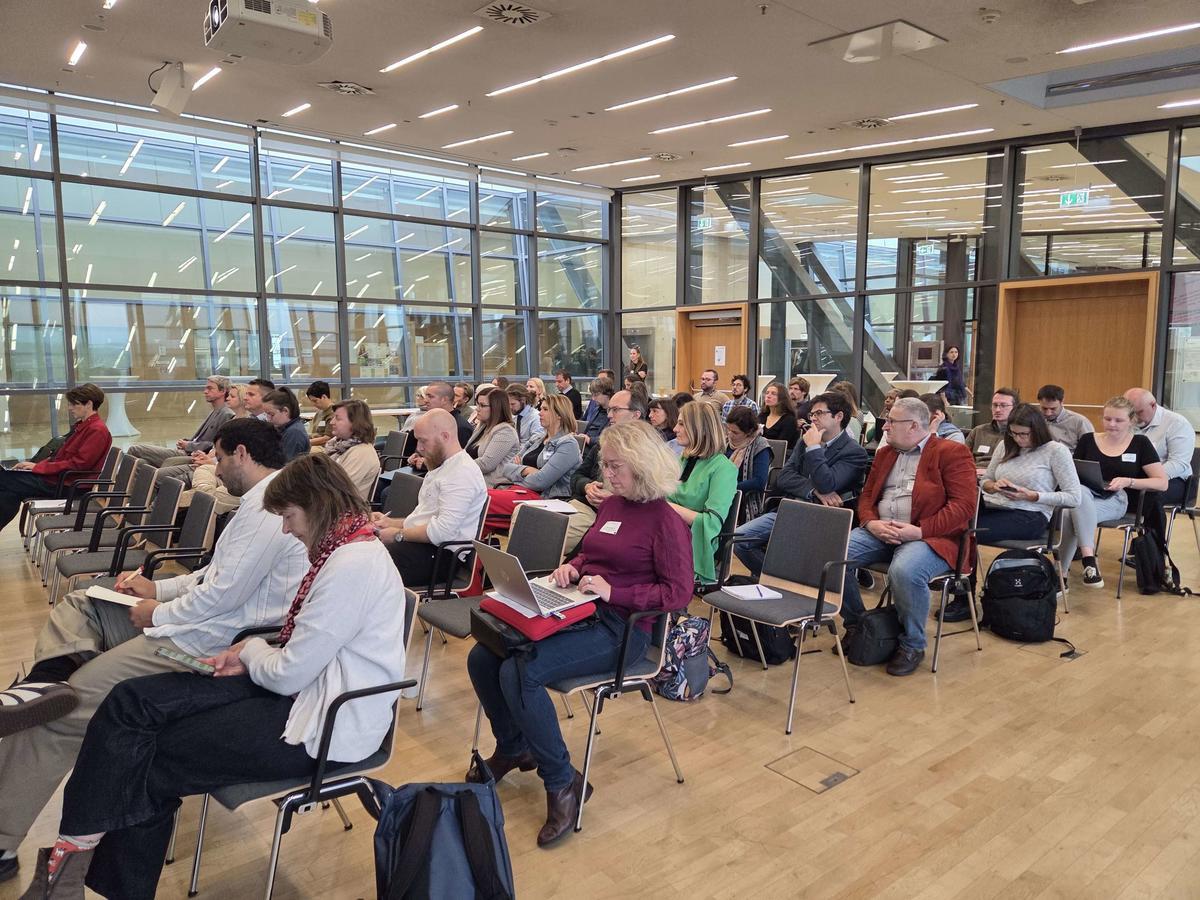
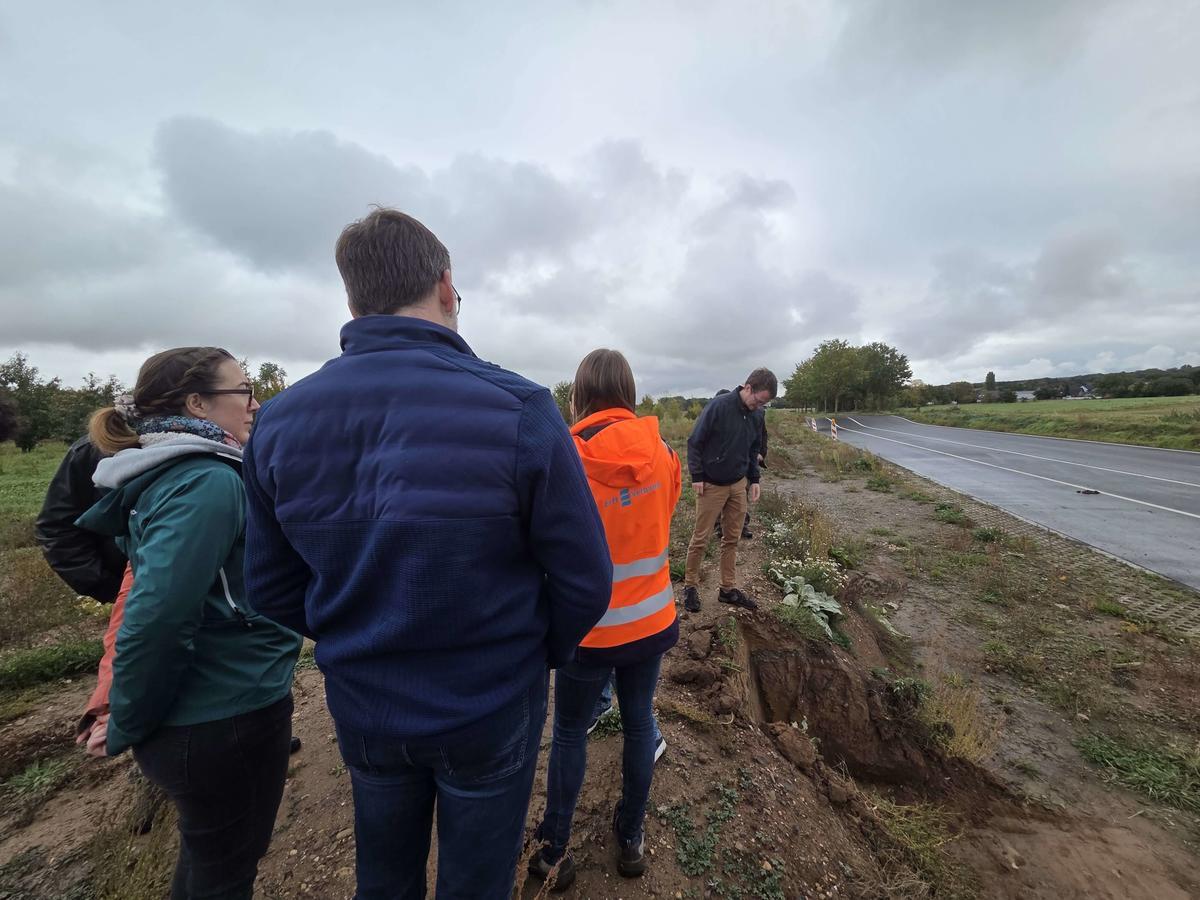
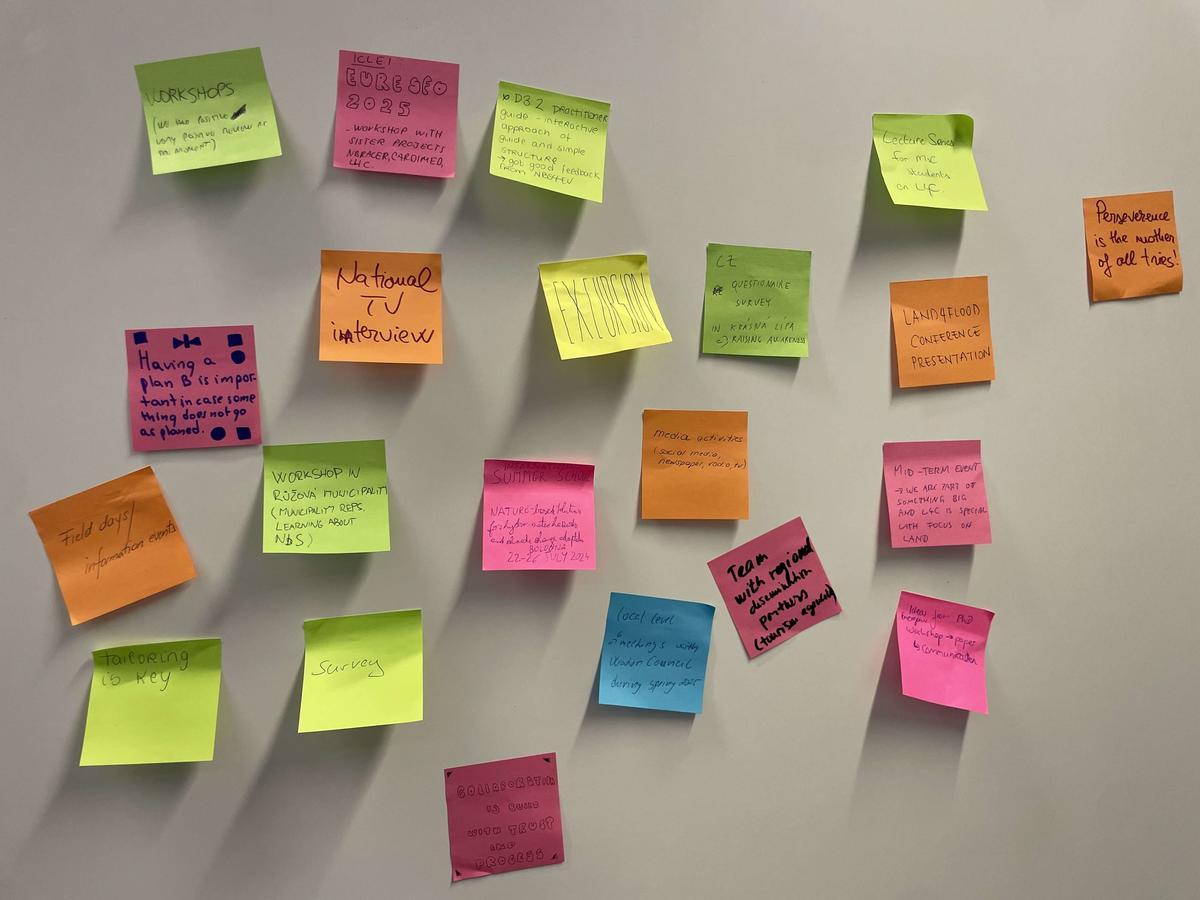
Publishing date:
